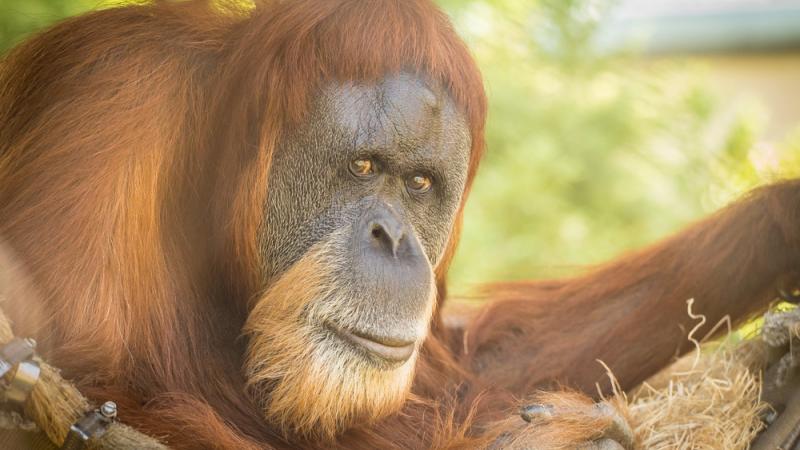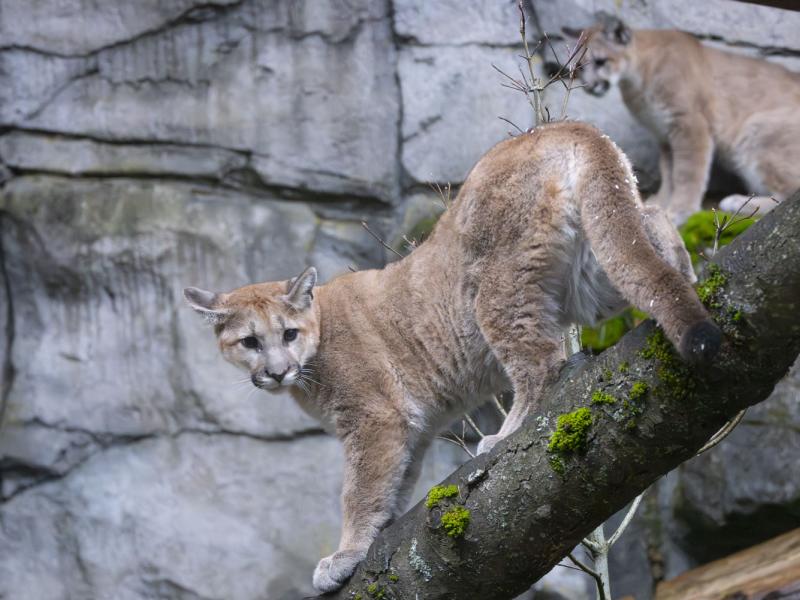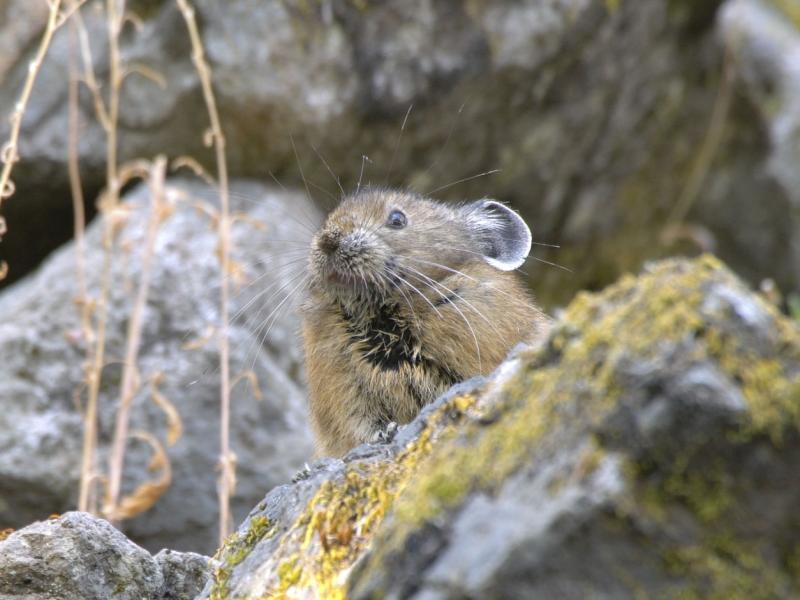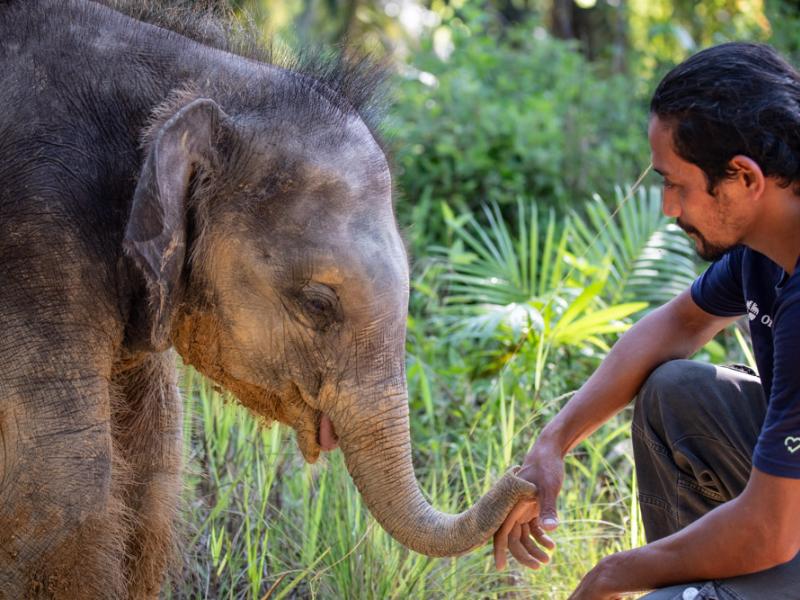World's oldest orangutan turns 60 at Oregon Zoo

Keepers say Inji, who arrived at the zoo in 1961, is in 'amazing shape' for her age
The Oregon Zoo's oldest resident, ultra-geriatric Sumatran orangutan Inji, turned 60 this month. She is thought to be the oldest orangutan in the world.
"Inji's in amazing shape for her age," said Asaba Mukobi, the zoo's senior primate keeper. "She has no major health concerns — she isn't taking any special medication. Her age and remarkable condition say a lot about the quality of care she's received over the years."
Inji's actual date of birth is unknown. She was born in the wild around 1960, came to the United States through the wild animal trade (legal at the time) and was brought to the zoo by her owner in 1961. She was estimated to be around a year old when she arrived at the zoo Jan. 30, 1961 — 59 years ago today.
"We're thankful that we've been able to give Inji a good home, but it's heartbreaking to think about the circumstances that brought her here," Mukobi said. "Even though the pet trade is illegal now, it still exists. It is considered a major threat to orangutans' survival, along with human encroachment and habitat loss from palm oil plantations. Orangutans are at the brink of extinction — especially in Sumatra, where Inji comes from."
Both the Sumatran and Bornean orangutan species are considered critically endangered, with fewer than 15,ooo Sumatran and 55,000 Bornean orangutans believed to remain.
The name "orangutan" comes from the Malay "orang," meaning man, and "hutan," meaning wilderness or jungle. According to Mukobi, many people are struck by the orangutans' close resemblance to humans.
"Building on that connection, we're trying to create awareness about what's happening to orangutans in their native lands and let people know how they can help," Mukobi said.
Inji is currently off-view as the zoo completes work on its new Primate Forest area, featuring expanded and improved spaces for chimps and orangutans. Primate Forest is one of eight major projects made possible by the community-supported zoo bond measure passed in 2008. With five of these projects now complete, the final three — new habitats for polar bears and primates, and an improved habitat for rhinos — are being managed as a single construction project.
More News

Rescued cougar cubs are venturing out
A pair of orphaned cougar cubs, rescued and brought to the zoo by Washington Department of Fish and Wildlife staff in November, have begun exploring their outdoor habitat.April 17, 2025

Zoo seeks pika watchers for summer season
The Oregon Zoo is recruiting volunteers for Cascades Pika Watch.April 15, 2025

Zoo convenes action for imperiled elephants
Sabah government representatives joined conservation NGOs, local communities, palm oil producers, and tourism operators this week in the fight to save the world’s smallest elephants from extinction.April 11, 2025

